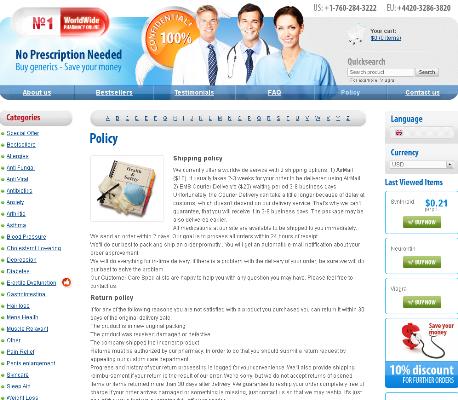| Royal City Drugs |
To Visit Online Pharmacy Click HERE ↓
Flexeril Withdrawal: Symptoms and Safe Tapering Tips
Understanding What Flexeril Is and How It Works
Flexeril, also known by its generic name cyclobenzaprine, is a muscle relaxant commonly prescribed to treat muscle spasms and related pain. It works primarily by influencing the central nervous system, specifically targeting the brainstem to reduce nerve signals that cause muscles to tighten. In doing so, Flexeril helps ease discomfort, allowing people to recover from injuries or manage chronic muscular pain more comfortably.
Unlike painkillers that mask pain signals, Flexeril interrupts the muscle spasm cycle at its core. This action provides relief for conditions such as back pain or strains, making everyday movements less painful. However, its effects are not limited to the muscles; Flexeril’s interaction with neurotransmitters can also produce drowsiness or a calming sensation.
| Brand Name | Generic Name | Main Use | Primary Effect |
|---|---|---|---|
| Flexeril | Cyclobenzaprine | Muscle Spasms | Muscle Relaxation |
Why Flexeril Withdrawal Happens: the Science Explained

When someone takes Flexeril, the body gradually becomes accustomed to its muscle-relaxing effects and the way it influences neurotransmitters in the brain, especially those related to pain and muscle contractions. Over time, the brain tries to balance itself by adjusting its natural chemical production. As a result, when Flexeril use is suddenly stopped or significantly reduced, the nervous system can go into overdrive trying to regain this equilibrium, leading to withdrawal symptoms.
This scientific process resembles the way the brain adapts to many central nervous system medications. Without the presence of Flexeril, the body momentarily struggles to recalibrate, and this imbalance can trigger symptoms ranging from irritability and restlessness to muscle pain and trouble sleeping. Understanding this helps explain why a careful, gradual reduction is key to minimizing discomfort.
Common Symptoms That Signal Flexeril Withdrawal
When discontinuing flexeril, individuals might notice changes in their body and mind as they adjust to its absence. Some people describe feeling unusually restless or agitated, while others may experience trouble sleeping as their system rebalances. Physical effects, such as headaches, nausea, or muscle aches, can also make daily activities more difficult. These symptoms can appear even if flexeril was used as prescribed, making the experience both confusing and frustrating for many.
Emotional changes are another important aspect to be aware of. Anxiety or mood swings can emerge, sometimes unexpectedly, as brain chemistry adjusts. In certain cases, people might also feel fatigued or mentally foggy, struggling to concentrate. Being mindful of these signs and how they develop is key to managing withdrawal more comfortably and safely.
How Long Does Flexeril Withdrawal Usually Last?

Everyone’s experience with Flexeril withdrawal can vary, but most people start to feel symptoms within a day or two of their last dose. The body needs time to readjust after stopping the medication, especially if you’ve taken Flexeril for several weeks or more. Early withdrawal symptoms, such as headaches, nausea, or mood changes, usually peak within the first 72 hours.
For some, these discomforts may linger a bit longer—up to a week or so—as the central nervous system rebalances itself. Factors like dosage, how long you’ve been taking Flexeril, and your general health can all influence this timeline. Sometimes, people notice subtle symptoms such as sleep disturbances or muscle aches that last a bit beyond the initial phase, but most find that withdrawal eases with patience and proper care.
Safe Tapering Methods to Lessen Withdrawal Discomfort
Tapering off Flexeril is most effective when approached with gradual dosage reduction rather than going “cold turkey.” This careful method allows the body to adapt to lower levels of the medication, helping minimize withdrawal symptoms. By consulting your healthcare provider, you can create a schedule that fits your specific needs and health profile.
During the process, tracking your progress and symptoms is essential. Many people find that breaking tablets into smaller doses or spacing them further apart each week leads to better comfort. Consistency is the key—avoid making sudden changes or skipping steps, as these can intensify discomfort or trigger cravings.
A support system often makes a meaningful difference. Whether through friends, family, or a support group, sharing your experience can ease the mental challenge of tapering. Staying hydrated, maintaining a healthy routine, and getting adequate rest are also important ways to support your recovery.
| Tip | Benefit |
|---|---|
| Gradually reduce dose | Minimizes severe withdrawal symptoms |
| Track symptoms | Helps to adjust tapering pace |
| Seek support | Improves emotional wellbeing |
When to Seek Medical Help during Flexeril Withdrawal
Navigating Flexeril withdrawal can feel overwhelming, especially as your body adjusts to life without the medication. It’s normal to experience mild discomfort, but certain symptoms may indicate that it’s time to get professional support. If you notice severe mood changes like depression, anxiety, or thoughts of self-harm, don’t hesitate to reach out for help immediately—these emotional shifts can escalate quickly without medical guidance.
Physical complications are another red flag. Intense muscle pain, persistent insomnia, tremors, or fast heartbeats should not be ignored. These symptoms may signal a more complex withdrawal process requiring medical oversight. Always trust your instincts; if withdrawal feels unmanageable or if symptoms worsen abruptly, contacting a healthcare provider ensures your safety. Supportive professionals can adjust your tapering plan and offer targeted interventions as needed.






Email Us
Fill out all the fields below and press submit, a rep will contact you as soon as possible.

